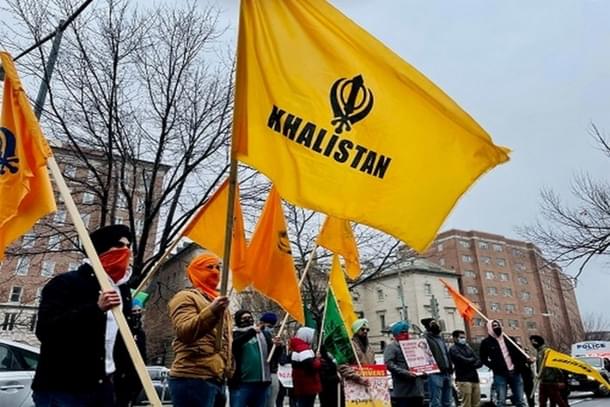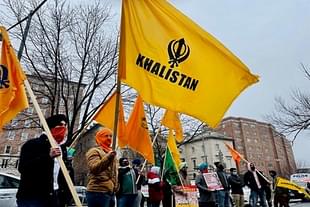News Brief
After 'Unknown Gunmen' Kill String Of Pro-Khalistani Elements, Outfits In Soup Over Leadership And Strategy: Report
Bhuvan Krishna
Apr 15, 2024, 03:10 PM | Updated 03:10 PM IST
Save & read from anywhere!
Bookmark stories for easy access on any device or the Swarajya app.


Amidst a series of attacks targeting overseas anti-India elements, intelligence reports to the Indian government suggest a peculiar dilemma among pro-Khalistani entities.
While some are in favour of adopting violent means to further their cause, citing a leadership vacuum, only a few are actively supporting this approach.
Both internal and external Indian intelligence agencies have highlighted the struggle of pro-Khalistani elements (PKEs) in establishing credible leadership.
Reports indicate that meetings have been held in the US and Canada to identify potential leaders for anti-India activities worldwide.
It has been observed that, apart from designated terrorist Gurpatwant Singh Pannun, there is a perceived need to introduce new faces to lead activities in various countries.
However, there seems to be disunity among PKEs, as only a few sympathisers support violent protests due to the absence of strong leadership.
Despite this, Pakistan-backed terror groups are intensifying efforts to recruit individuals to advance the Khalistan agenda, particularly in the UK and Canada. Differences among supporters were evident during protests in Toronto and Surrey.
Indian agencies are closely monitoring these activities and have cautioned the country's diplomatic community against violent anti-India activities by pro-Khalistani elements outside Indian consulates. Additionally, concerns have been raised regarding human trafficking efforts by these elements.
This comes after a Guardian report alleged that Sikh separatists associated with the Khalistan movement were targeted, both within Pakistan and abroad.
Notably, Canadian Prime Minister Justin Trudeau had alleged India's role in the killing of Khalistani terrorist Hardeep Singh Nijjar last year. Similarly, there are allegations that India planned to kill Pannun in US.
Bhuvan Krishna is Staff Writer at Swarajya.




